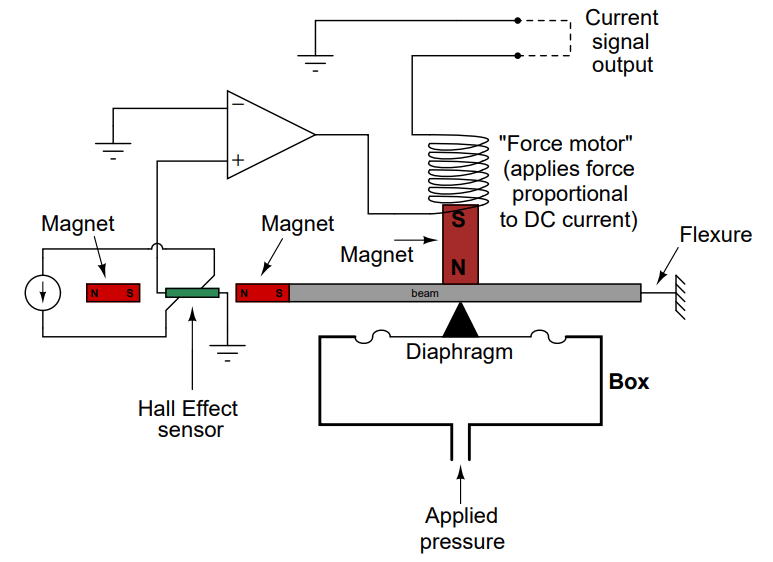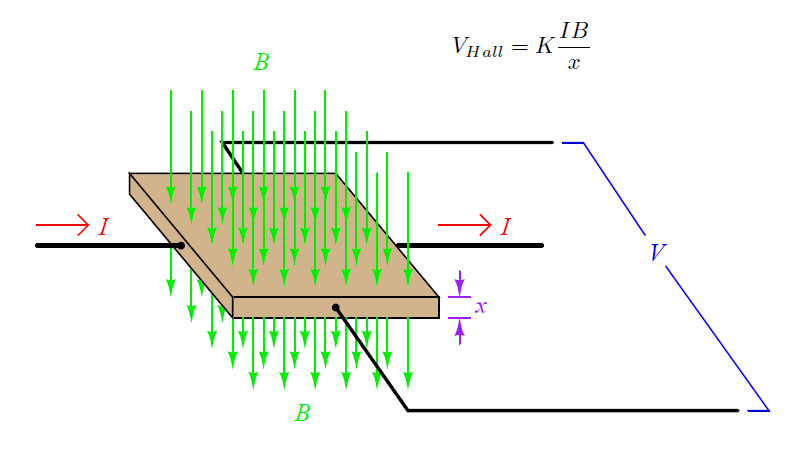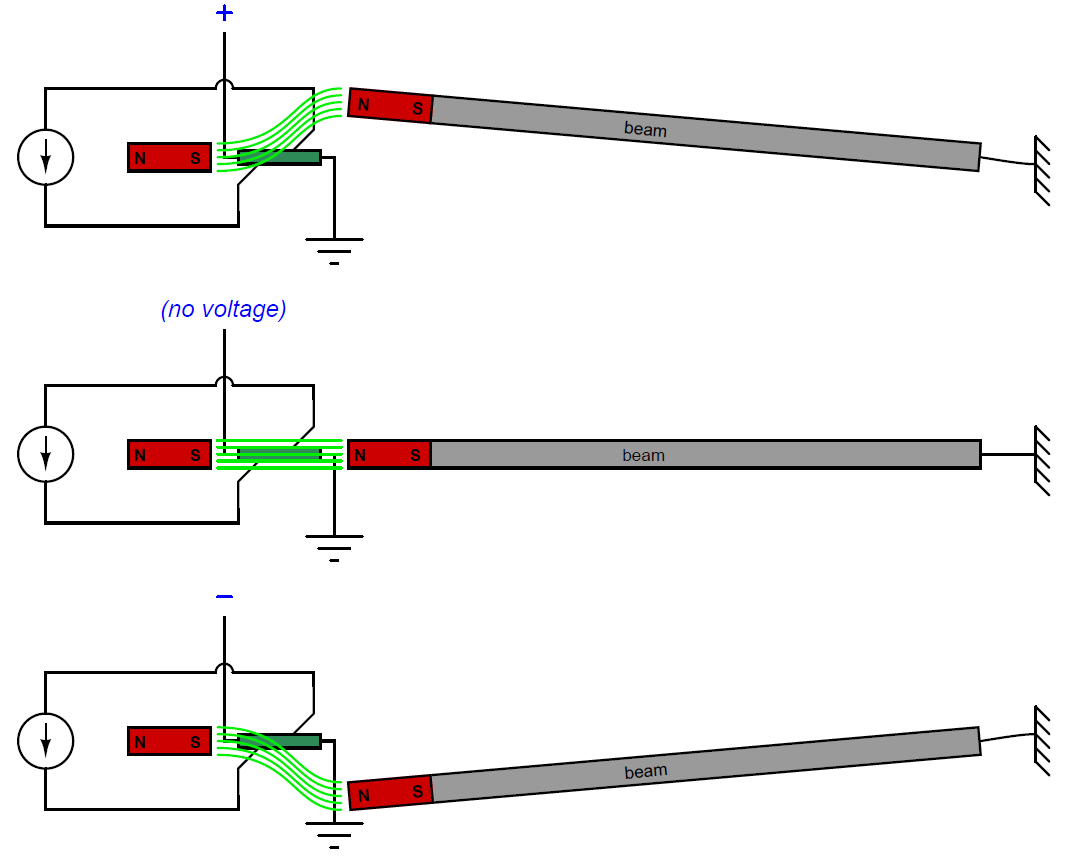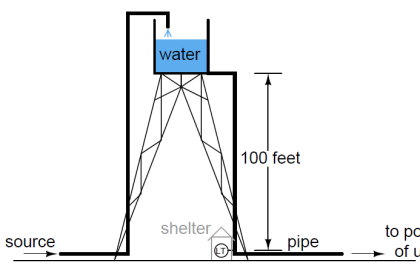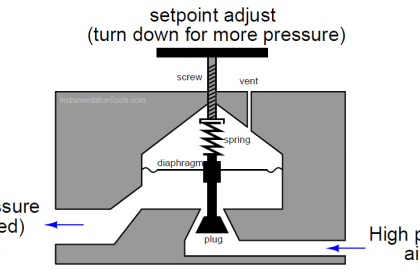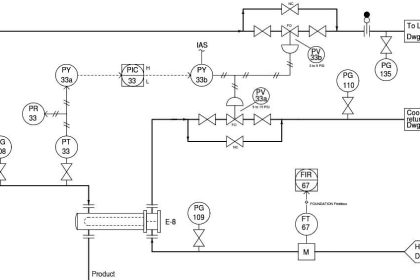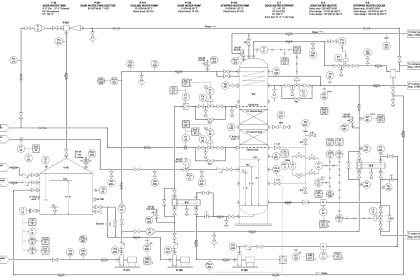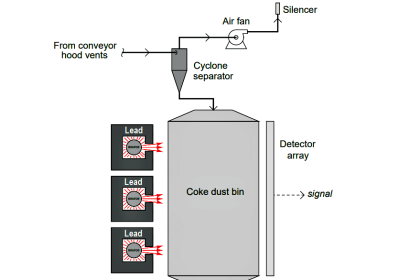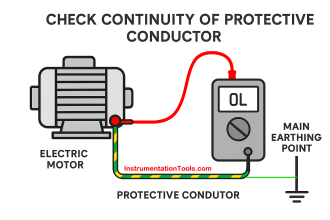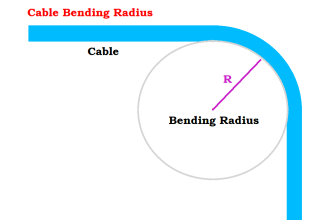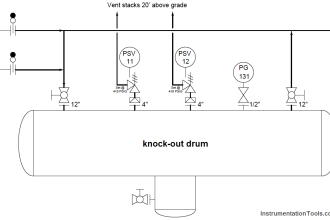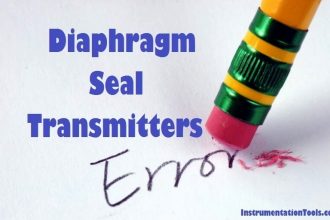Shown here is a diagram for an electronic force-balance pressure transmitter:
Force Balance Pressure Transmitter
Explain the following things in reference to this transmitter:
- What is a flexure?
- How is the opposing force generated?
- What does a Hall Effect sensor do?
- How is an imbalance of force detected?
- How would you incorporate a zero adjustment into this transmitter?
- How would you incorporate a span adjustment into this transmitter?
A flexure is a thin strip of springy material, usually spring steel, designed to act as a frictionless fulcrum and/or a pivoting link. Unlike bearings, flexures are usually not able to handle a lot of angular motion. Hall Effect sensors are used to detect magnetic fields.
They generate a DC voltage proportional to the magnitude and polarity of an applied magnetic field and the magnitude and direction of a perpendicular DC current:
Hall Effect
The operation of the Hall Effect sensor may not be clear to all readers. It is oriented such that the magnetic field is parallel to the Hall Voltage axis and not perpendicular to it, when the beam is exactly level.
When the beam tips up or down, however, the magnetic flux lines passing from the “North” tip of the beam’s magnet to the “South” tip of the stationary magnet to the left of the Hall Effect sensor will angle, passing through the Hall Effect sensor with a definite direction, either up or down, depending on which way the beam tips:
Thus, any output voltage from the Hall Effect sensor indicates an out-of-balance condition between the diaphragm and force motor.
The applied pressure changes the position of the beam, thus the hall effect sensor voltage varies in accordance with the measured pressure and by using this we can measure the applied pressure.
Note: These are very old models and obsolete now.
Read Next:
Credits: Tony R. Kuphaldt
